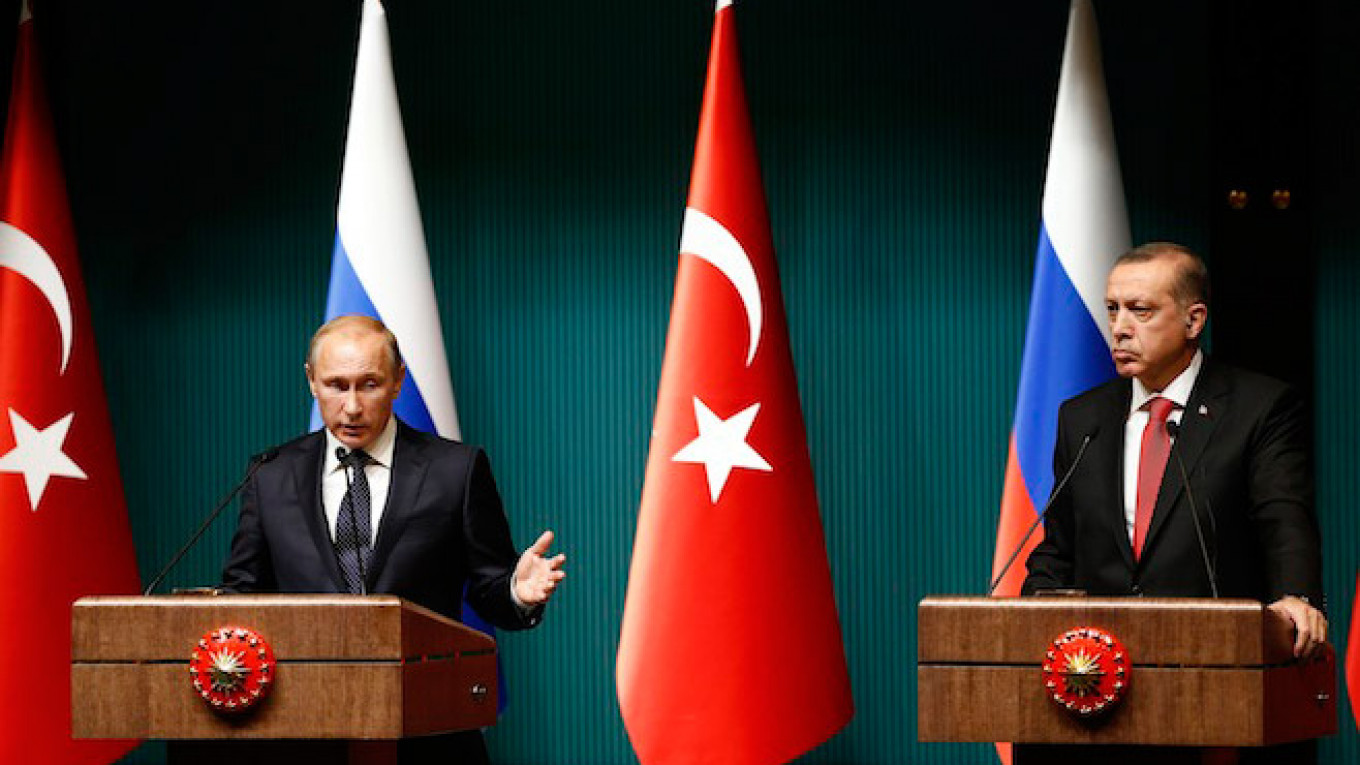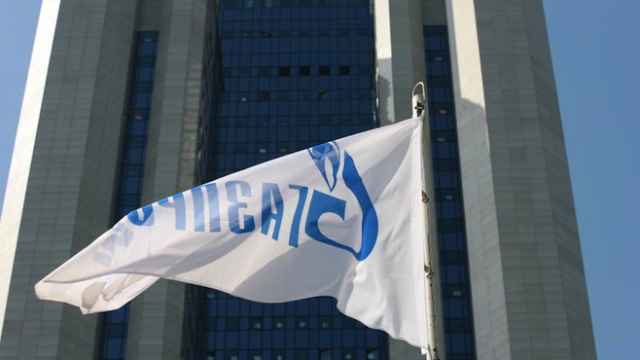Although officials in Moscow have trumpeted the cancellation of the South Stream natural gas pipeline as a major blow to Europe, energy analysts say that Russia's alternatives are tenuous at best.
After years of work on a gas pipeline meant to cross southeastern Europe and bring fuel to the heart of the EU, sidestepping troubled Ukraine, Gazprom last week confirmed a change in strategy was under way.
Instead of stretching a pipeline across Europe and dealing with prohibitive EU legislation that requires infrastructure be open to third parties, Gazprom said it will transport the gas to a hub in Turkey, from which the EU can take it or leave it.
"[South Stream] is closed. The Turkish Stream is the sole route. There are no other options," Gazprom CEO Alexei Miller was quoted as saying by news agency TASS.
Analysts interviewed by The Moscow Times on Wednesday, however, said that Russia's ultimatum is undermined by declining demand in the EU and the fact that Europe can turn to other suppliers, as well as a lack of concrete projects Russia can rely on in negotiations with Turkey.
"Gazprom's negotiating position is weak. It is backed by nothing other than statements that Europe cannot do without Russian gas. Unfortunately, it can," said Sergei Pikin, director of the Energy Development Fund, a Moscow-based think tank.
South Stream Dead?
President Vladimir Putin's announcement in December that the $45 billion South Stream project would be cancelled due to the EU's "unconstructive" position was initially met with disbelief.
The leaders of both Bulgaria and Serbia — countries that rely heavily on Russian gas supplies — at the time expressed their confidence that the project might still be carried through.
But Russia's position has been adamant. Both Gazprom's Miller and Russia's Energy Minister Alexander Novak have even said that the EU should step up and quickly build a pipeline network to the Turkish border on its own.
The gas transit contract with Ukraine expires in 2019 and Russian officials have suggested they may not prolong it, meaning 40 percent of Russian gas supplies to Europe may go elsewhere.
"This is a very tight schedule. To comply with it, work for the construction of new gas pipelines should be started in EU countries right now. Otherwise, these gas volumes may be redirected to other markets," Miller said.
European energy officials appeared utterly shocked by this announcement.
"We don't work like this," news agency Bloomberg quoted Maros Sefcovic, the European Commission's vice president for energy union, as saying last week.
The Upper Hand
According to Pikin of the Energy Development Fund, EU officials are only worried about the Eastern European countries that rely heavily on gas supplies from Russia.
"But if pressed, within the next 10 years Europe can completely abandon unstable gas supplies from Russia," Pikin said.
Currently, the volume in question is 60 billion cubic meters of gas per year, which is about 10 percent of the EU's total annual gas demand. Today, natural gas makes up 23 percent of Europe's total energy mix, down from 25 percent in 2010.
Prompted by earlier supply disruptions, Europe has been making efforts to decrease its dependency on gas in general and on Russian gas in particular.
Eurogas, an agency that represents the interests of the European gas industry, expected demand for the fuel to contract by 8 percent in 2014. Demand may decrease even further as the EU continues to step up its use of renewable sources of energy.
Moreover, the EU's gas storage facilities could be filled up with liquefied natural gas from places other than Russia.
"This fuel will not be much more expensive than pipeline gas now, as sinking oil prices are bringing down the prices for gas as well," Pikin said.
Turkish Stream
As for the proposed Turkish Stream pipeline, analysts were skeptical about its prospects, at least in the form trumpeted by Russia.
Out of the 63 billion cubic meters (bcm) per year of capacity that Gazprom announced for its new pipeline to Turkey, 14 bcm would be taken out for Turkey's own needs, leaving 49 bcm destined for Europe.
"The most important problem is that there is simply not enough capacity to deliver these volumes from the Greek-Turkish border into the heart of Southeastern Europe in order to reach the consumers that Gazprom planned to reach with South Stream," said Jack Sharples, an associate professor and lecturer in energy politics at the European University in St. Petersburg.
Unless new pipeline capacity is built to deliver the gas onward from the Turkish-Greek border to consumers in the EU, it will simply be a project without a purpose, he said.
And even as officials in the EU are only now beginning to discuss this possibility, Turkey's own position on the pipeline is still unclear.
"Turkey does not seem to have a clear vision on Turkish Stream, and it has not decided where [Turkey] should stand and what her role should be in this project," said Gulmira Rzayeva, a research associate at the Oxford Institute for Energy Studies.
"There are many uncertainties and no legally binding documents signed yet," she said.
Contact the author at a.panin@imedia.ru
A Message from The Moscow Times:
Dear readers,
We are facing unprecedented challenges. Russia's Prosecutor General's Office has designated The Moscow Times as an "undesirable" organization, criminalizing our work and putting our staff at risk of prosecution. This follows our earlier unjust labeling as a "foreign agent."
These actions are direct attempts to silence independent journalism in Russia. The authorities claim our work "discredits the decisions of the Russian leadership." We see things differently: we strive to provide accurate, unbiased reporting on Russia.
We, the journalists of The Moscow Times, refuse to be silenced. But to continue our work, we need your help.
Your support, no matter how small, makes a world of difference. If you can, please support us monthly starting from just $2. It's quick to set up, and every contribution makes a significant impact.
By supporting The Moscow Times, you're defending open, independent journalism in the face of repression. Thank you for standing with us.
Remind me later.






